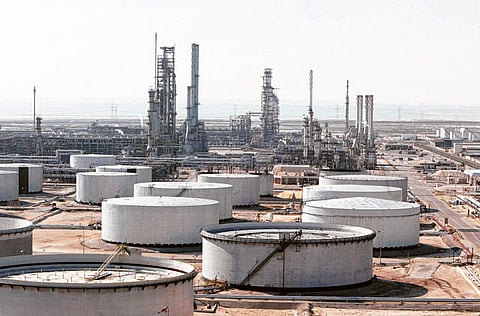Saudi Arabia's economy shows gains from lockdown withdrawals
Key numbers show overall economy and key sectors inching back to some normalcy

Riyadh: Saudi Arabia's non-oil economy - the engine of job creation - contracted at a slower annual pace of 2.1 per cent in the third quarter as the kingdom lifted a coronavirus lockdown and businesses gradually reopened. The overall economy shrank by 4.6 per cent between July and September compared to the same period last year.
The oil sector shrank 8.2 per cent year-on-year. The headline number compares with a flash estimate of a 4.2 per cent contraction released last month, which didn't include a breakdown by sector.
The figures were a relative improvement after the economy shrank an annual 7 per cent in the second quarter, with the non-oil sector declining 8.2 per cent and unemployment spiking to the highest level on record. The world's largest crude exporter is facing a dual crisis this year as the pandemic and lower energy prices combine to strain its finances and the private sector.
The government projects an overall contraction of 3.7 per cent this year, followed by 3.2 per cent growth next year.
Easing back
The improved performance in the third quarter reflects a gradual return to normalcy after authorities began lifting coronavirus lockdowns from May. Officials haven't imposed any new restrictions since then, and the country has so far avoided another wave of infections.
Many restaurants, malls and gyms are bustling again as the government prepares to start vaccinating against the coronavirus this week. However, economists say austerity measures like government spending cuts and a tripling of value-added tax will continue to weigh on growth.
Finance Minister Mohammed Al-Jadaan said the government is prioritizing a return to fiscal discipline next year after the pandemic strained state finances, with spending set to fall 7 per cent. He stressed that government-controlled funds could make up the difference, though, with officials leaning heavily on the sovereign Public Investment Fund to invest domestically.
Sign up for the Daily Briefing
Get the latest news and updates straight to your inbox






